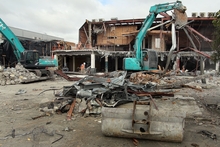Nov 26, 2014

‘Durable’ NZ recovery underway
The New Zealand Institute of Economic Research expects the economy to grow 3.4 per cent this year but then slow, to a moderate average rate of around 2.5 per cent over the next five years.
“One-off boosts are fading, but there is a durable underlying recovery taking place that is not built on fickle borrowing,” NZIER principal economist Shamubeel Eaqub said, releasing the institute’s latest quarterly predictions.
Eaqub sees two components to the recent strong growth – a gradual but sustainable underlying recovery and one-off boosts.
“The core recovery has been moderate, but strong enough to generate jobs and income growth. Household and business behaviour is slowly returning to normal. This part of the recovery is durable as it is largely funded out of income, rather than borrowing,” Eaqub said.
“But one-offs boosts are beginning to fade. An accelerating Canterbury rebuild was adding to economic growth. We expect this to peak in early 2015,” he said.
“The rebound from last summer’s drought is now past us. Dairy prices have halved in the last nine months and added some gloom to the rural economic outlook.
“Surging house sales and prices were adding to confidence and demand – but the housing market has moderated.”
The two key risks to the economic outlook were slowing global growth and the overvalued Auckland housing market, Eaqub said.
While the United States is recovering and Chinese growth remains brisk, Japan is in recession and Europe on the brink of one.
The risk of an all-out housing bust was low. “House sales have stabilised after sharp declines through much of the year.”
There were few signs of generalised inflationary pressures and enough risks on the global front for the Reserve Bank to react to signs of accelerating inflation, should they emerge, rather than pre-empting it and eroding economic growth and export competitiveness, he said. The absence of inflationary pressures – the CPI rose just 1 per cent in the year to September – was consistent with an uneven economic recovery.
“There are large swathes of the economy (sectors and regions) which have excess capacity. While there are a few hotspots, they are not widespread, nor are they spilling over.”
NZIER does not expect the Reserve Bank to resume official cash rate increases until early 2016.
The bank’s underlying motivation to increase interest rates this year was to cool the housing market, Eaqub said. “House sales have slowed and borrowing behaviour has shifted much more than interest rates have. Borrowers have moved aggressively to fix – the proportion of mortgage borrowing that is fixed for more than a year has leapt from about 25 per cent to near 40 per cent now.”
